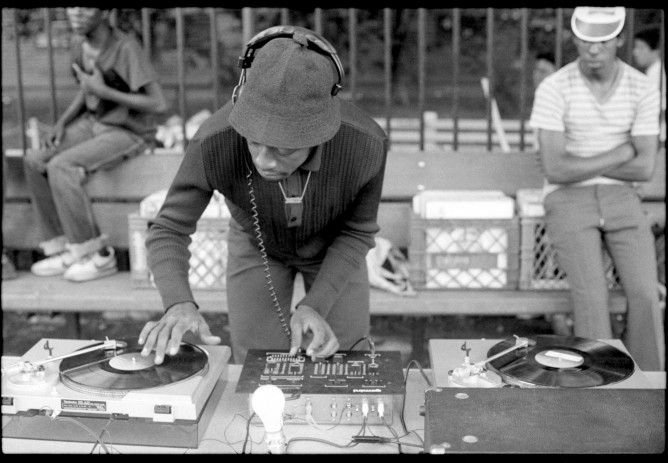Crate digging, sampling and the DJ

Crate digging refers to the practice of digging through crates of vinyl records in search of rare or obscure gems that can be used in DJ sets or production. The term originated in the 1970s and 1980s, when DJs would often have to scour record stores, flea markets, and thrift shops to find the records they wanted to play. Many of these DJs were looking for breaks, which are short sections of a song that can be looped and used as the basis for a new composition.
Sampling, on the other hand, refers to the practice of taking a section of a recording and reusing it in a new composition. Sampling can range from simple drum loops to complex arrangements that combine dozens of different samples from a variety of sources. The use of samples in hip-hop and electronic music has been a key part of the genre since its inception, and has been responsible for some of the most iconic songs in the history of popular music.
One of the early pioneers of crate digging and sampling was DJ Kool Herc, who is often credited with inventing the breakbeat in the early 1970s. Herc would use two turntables to play instrumental sections of funk and soul records back to back, creating a continuous loop that dancers could groove to. Other DJs quickly picked up on this technique and began to expand on it, using more and more obscure breaks and samples in their sets.
As hip-hop music grew in popularity in the 1980s, crate digging and sampling became an integral part of the production process. Producers like Marley Marl, Pete Rock, and DJ Premier would spend hours digging through crates of records to find the perfect samples for their tracks, often using multiple samples from different sources to create a rich, layered sound. Many of these producers became famous for their use of samples, and some of their most famous productions are still revered today.

Today, crate digging and sampling continue to be important parts of DJ and hip-hop culture, and many producers still rely on vinyl records as a source of inspiration and material. While technology has made it easier to find and manipulate samples, the thrill of discovering a hidden gem in a dusty crate of records remains a key part of the creative process.
Certainly! The history of DJ'ing is a fascinating story that dates back to the early 1900s, when radio became a popular form of entertainment. In those early days, radio DJs would often play live music on the air, introducing songs and providing commentary for listeners. As technology advanced, the role of the DJ began to change, and in the 1940s and 1950s, the first nightclub DJs began to emerge.
One of the earliest DJs to gain widespread recognition was Francis Grasso, who began spinning records at the Sanctuary club in New York City in the late 1960s. Grasso was known for his innovative mixing techniques, which involved beatmatching and blending songs together in a seamless, fluid way. Another key figure in the development of DJ culture was David Mancuso, who hosted legendary parties at his home in New York's SoHo neighborhood, where he would spin eclectic mixes of music and create a sense of community among his guests.
In the 1970s, DJ culture really took off with the rise of disco, and DJs like Larry Levan, Frankie Knuckles, and David Morales became major players in the scene. These DJs were known for their ability to keep the dancefloor packed all night long, using innovative mixing techniques and a deep knowledge of music to create a non-stop party atmosphere.

In the 1980s, the rise of hip-hop brought a new generation of DJs to the forefront, including Grandmaster Flash, Afrika Bambaataa, and Kool Herc. These DJs were known for their turntablism skills, which involved using turntables and mixers to scratch and manipulate records in real time. The use of samples and loops also became a key part of hip-hop DJing, as DJs would cut up and reassemble parts of records to create new tracks.
In the decades since, DJ culture has continued to evolve and expand, with DJs becoming major celebrities in their own right and electronic dance music (EDM) becoming a dominant force in the global music scene. Today, DJs continue to push the boundaries of what is possible with turntables, mixers, and digital tools, while also honoring the rich history and tradition of DJ culture.
Are you a crate digger, musician or a DJ? do you sample? what are your thoughts about the artfrom

There is reasonable evidence that this article is machine-generated. Posting such content is considered fraud.
Fraud is discouraged by the community and may result in the account being Blacklisted.
Guide: Why and How People Abuse and Defraud
If you believe this comment is in error, please contact us in #appeals in Discord.